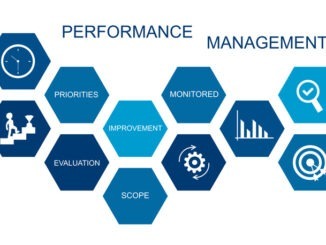
You may have heard of John C. Maxwell’s famous saying ‘Teamwork makes the dream work’ – but what exactly makes the team work?
CREDIT: This is an edited version of an article that originally appeared on Management Today
A new report from talent and recruitment company LHH has sought to unpick the ‘ingredients’ for a successful team, coming up with three pointers to boost performance and strengthen group ties.
The research, which was compiled in partnership with the Corporate Research Foundation and International Institute for Management Development, suggests we need to evolve our thinking on how we collaborate.
Dispersed, diverse, hybrid: the teams of today look very different from those of yesterday, with practical implications for leaders.
The report’s recommendations are as follows.
Be clear on purpose
Alignment on purpose is key to high performance, says the report, which is based on a review of academic and practitioner research, as well as interviews with senior leaders.
“In a purpose-led team, everyone knows why the team exists, what its goals are and what direction it is going in,” explains Burak Koyuncu, SVP, head of LHH leadership development, UK & Ireland and international markets.
“If teams can see how their work positively impacts wider business goals, this supports shared ownership and purpose, higher satisfaction and performance.”
As a first step, leaders should identify what type of team they are helming. Are you a ‘real’ team with a shared goal or purpose, or a co-acting group where individual tasks do not depend on what others do?
Secondly, ask questions to help ‘real’ teams define their purpose. For example: ‘What is the team uniquely there to achieve as a collective?’
Foster a feeling of belonging
Wherever you stand on the hybrid versus office working divide, chances are you will be spending less face-to-face time with your team since the pandemic.
Positive team dynamics and performance are built on trust and psychological safety, which also drive a sense of belonging.
However, the new hybrid way of working has made it harder for teams to experience the ‘competence’ and ‘interpersonal’ trust required for psychological safety, says the report.
Solutions include: team coaching, creating strong team structures with support networks and being intentional about building in-depth connections.
Prioritise agility
Fundamental changes in working practices have placed greater importance on agility and pace.
To build agility, LHH suggests “creating and repeating habits”.
It adds: “Allowing time for reflection between implementing new processes or improving existing ones helps teams adapt to and embrace behavioural or process change.”


Be the first to comment